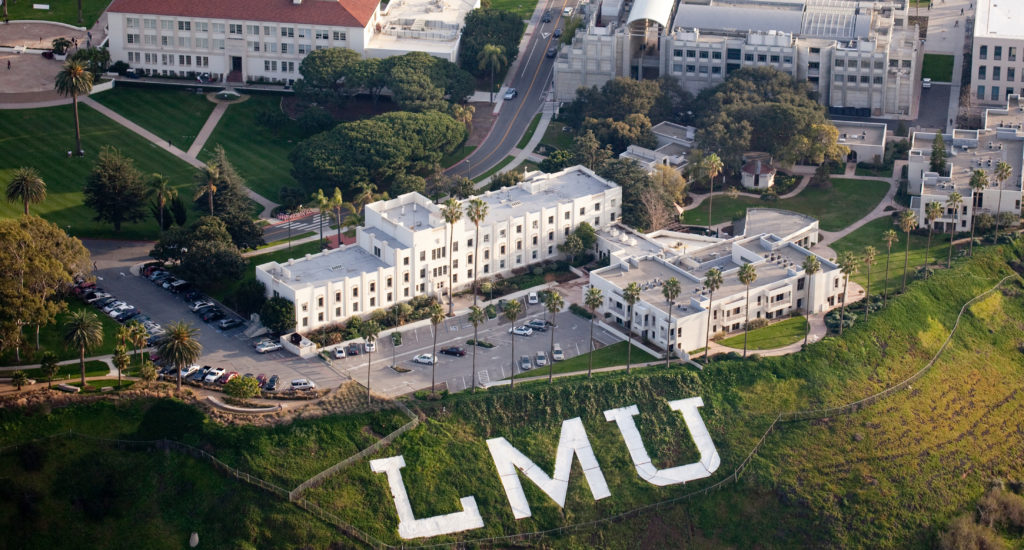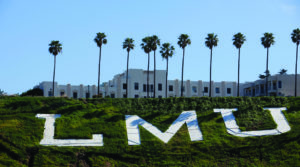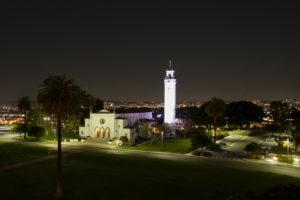By William Perez, Ph.D.
Professor and Associate Dean for Diversity, Equity, and Inclusion
LMU School of Education
Latinx professors make up 11 percent of the faculty at LMU. They are a vibrant and diverse group whose collective efforts are an essential element of our world-class academic programs. As we enter the third week of Latinx Heritage month at LMU, I will highlight how Professors Brenda Nicolas and Sandibel Borges expand and contest our understanding of Latinidad through their teaching and scholarship. Nicolas is an assistant professor in Chicana/o and Latina/o Studies; Borges is an assistant professor in Women’s and Gender Studies. As the newest members of the LMU faculty, their scholar-activist approach is redefining their respective academic fields and, most importantly, they are invaluable mentors and teachers for our students.
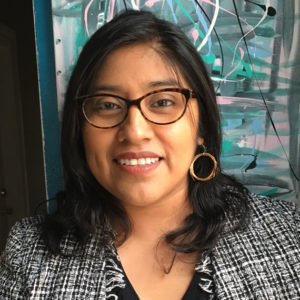
Nicolas, who identifies as a Oaxacan Zapotec, teaches “Introduction to Chicano/Latino Studies.” Even though she has been at LMU for less than two years she has had several Mixtec and Zapotec students in her class. For them, having a Chicano/Latino course that includes their experiences draws them to office hours to ask about other courses she teaches.
“Latinx is not only those that speak Spanish,” Nicolas said. “It also includes those that speak indigenous languages and fall outside of the racial logic of Latinidad. Indigenous practices are still part of our traditions and our identities. Our forms of belonging remain connected to our parents’ pueblos and that is why the children of indigenous migrants continue participating in traditional dances and Oaxacan brass bands and when they grow up many become involved with their hometown associations.”
Nicolas aims to nurture her students’ political consciousness. She draws on her personal experiences of marginalization and discrimination within her Latinx immigrant community in South Central Los Angeles. She said, “I grew up feeling embarrassed for being Oaxaqueña and looking Indian. I experienced bullying and being called [expletive] Oaxaquita or [expletive] india. That hurt. As an undergraduate I became involved with FIOB (Frente Indigena Oaxaqueña Binacional). It was that involvement that nurtured my identity as a Oaxaqueña. I shifted from cultural awareness because my parents speak Zapoteco to a political consciousness of my indigeneity.”
In both her queer migrations class and queer of color critique course, Borges discusses her field work at an immigration detention facility where they place trans women. She said, “I write letters of support for their asylum applications. Some of them are granted asylum, some of them are deported, so, when it’s relevant in the conversations in my classes, I share some of that.”
She also shares her positionality: “I identify as a queer immigrant Latina raised in a working-class home. Initially I felt a little nervous to share that with my students but that’s me. That’s the research I do. The students really welcomed that, and I felt very safe to be very open about my experience and connect it to the texts that we discuss in class.”
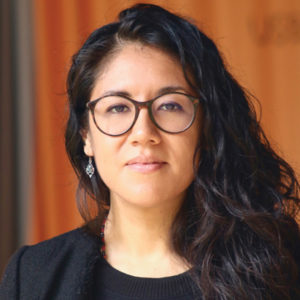
Borges’ circle of concern takes in all her students, intentionally validating the experience of BIPOC students.“I like having that connection with my students and working closely with them to do community-based research and mentor them,” she said. “I love teaching students of color students who come from marginalized backgrounds. It makes me so happy to see that they feel seen by me.”
Like Nicolas and Borges, one of the primary concerns in my scholarly work has been to demonstrate the diversity of experience among Latinx immigrants in the U.S. For example, in 2016, after a decade learning from undocumented, undocuqueer, and transborder indigenous youth activists, my colleagues and I produced a documentary film to highlight their Latinidad titled, “Una Vida Dos Paises: Children and Youth (Back) in Mexico.”
The film features the experiences of trilingual Oaxacan youth (Zapotec, Mixtec, English, Spanish) that grew up in the U.S. but returned to Mexico. To inform our efforts we turned to the writings of the new generation of scholars who are creating the latest theoretical frameworks about Latinidad. The pioneering scholarship of Nicolas and Borges served as a guide for our film. Imagine my enthusiasm when they joined LMU and became co-conspirators en la lucha. Their presence on the faculty is proof that the future of LMU está en buenas manos.
DEI Buzz
- More information about events for Latina/o/x Heritage Month can be found here.
- Learn more about LMU’s Anti-Racism Project and DEI initiatives here.
- Stay tuned for the faculty and staff Climate Survey next month, which will be administered Oct. 26-Nov. 19.
- Systemic Analysis Year 2 initiatives are in place.
- Register for a Report Out Session, where units who are in-progress will share their work and receive feedback from the community.
- Register to attend one of three types of workshops offered this year:
- “Classic Consultation Workshops for Unit Reflection”
- “Capacity and Community Building Workshops”
- “Faculty Workshops with the Center for Teaching Excellence.”

